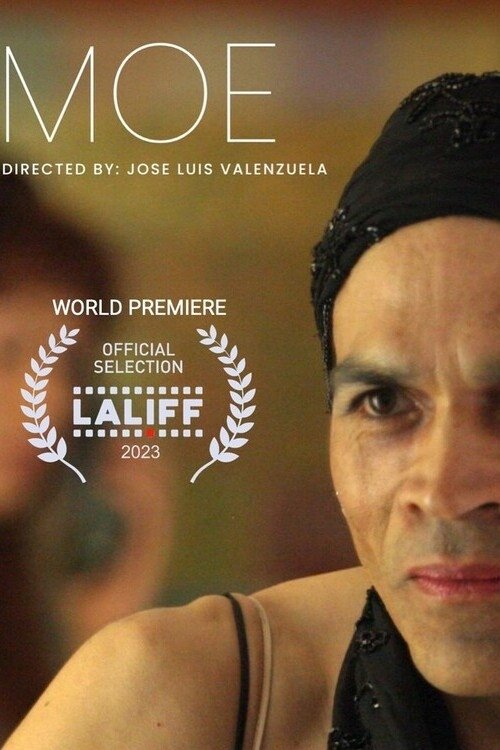Moe
Moe
Genres Comedy ,Drama ,Musical
Directors José Luis Valenzuela
Writer Evelina Fernández
Country United States
Votes 32
Rating 4.1
IMDBID tt0762118
Runtime 80
Languages English
Release 04 Jun, 2023
Cast Sal Lopez ,Tonantzin Esparza ,Geoffrey Rivas ,Danny De La Paz ,Lucy Rodriguez
A tale about a man named Moe, a fun-loving Latino who is living his remaining days to the fullest as he suffers from AIDS. The story unfolds over the course of two nights in two distinct worlds: Moe's reality and Moe's imagination. In his reality, he finds his life has deteriorated to an I-V drip, an oxygen tank, and disposable diapers. In his mind, he is guided through a fantastic journey of endless possibilities by his torch-song-singing confidante and alter-ego, Lupe. With death fast-approaching, Moe summons his closest friends to celebrate one last night. Through the course of this fateful final evening, Moe embarks on a wild and nostalgic fantasy of secrets, lies, and ultimately, the truth.







Brent Marchant
When Moises (a.k.a., “Moe”) (Sal Lopez), a gay theater director dying of AIDS, decides to throw a final farewell party for himself, things don’t quite turn out as planned. Surrounded by family (Tonantzin Esparza), longtime friends (Geoffrey Rivas, Danny De La Paz, Lucy Rodriguez) and an ex-wife (Evelina Fernández) whom he hasn’t seen in 15 years, this would-be celebration of life turns somewhat troubling with the revelation of long-hidden truths, a time for the release of secret pains, but also an opportunity for closure and redemption as the end draws near. As Moe’s story unfolds, the film takes on the character of a life review, with flashbacks that touch on his past, often “hosted” by his alter-ego, Lupe (Richard Coca), a drag queen cabaret chanteuse. Based on the award-winning stage play Dementia and filmed in 2005, director José Luis Valenzuela has at last been able to bring his long-held cinematic dream to the screen in a touching yet sometimes gut-wrenching tale filled with plenty of heartfelt moments and more than its share of biting wit. In some ways, the film plays like a gay version of “All That Jazz” (1979) with occasional touches of “Torch Song Trilogy” (1988) and “Angels in America” (2003) thrown in for good measure but without becoming shamelessly duplicative. Admittedly, the picture turns a little too melodramatic for its own good at times in the final act with the exposure of a few too many revelations that stretch the narrative’s credibility. A few production glitches show up now and then, too, detracting from the overall quality of what’s obviously a surprisingly well-made shoestring budget production. Otherwise, though, “Moe” is clearly a labor of love brought to life about a time when life itself is coming to an end, a story that’s economically told without becoming schmaltzy, manipulative or unduly campy in the process, which it easily could have been if left in less-skilled directorial hands. This offering may not be particularly easy to find, but it’s worth a look if the opportunity presents itself.
posts by : Brent Marchant